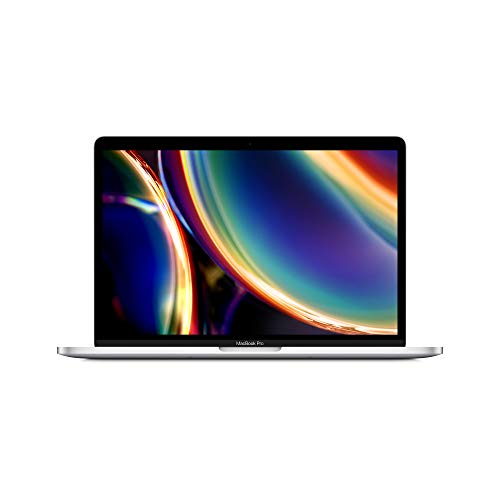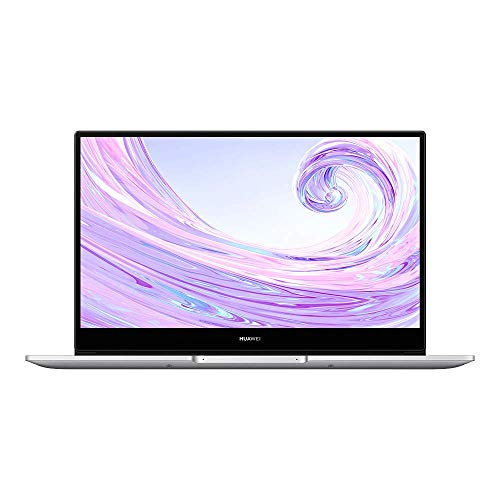The 5 Best Laptops for Grad School Reviewed

If you’re here reading this article, our guess is that you’ve applied to grad school.
Or that you’re thinking of going to grad school. Or that you’ve just fallen down the rabbit hole that is the internet.
Everyone knows that education in the US is expensive, and you may consider cutting costs by buying a cheap laptop.
But this is not a good idea, it’ll cost you more money in the long run, so it is definitely worth investing the money in a good laptop, to begin with.
But we understand that buying a laptop can be a scary process. The market is hugely saturated, and there are so many different companies manufacturing laptops with different specialties in mind.
That’s why we’ve put together this great guide to the best laptops for grad school. It’s packed full of all the best laptops currently on the market, with additional information on what to look for and an FAQ section to make sure you make a fully informed purchase.
In a hurry?
If you’re in a rush, why not choose the Apple Macbook Pro?
A Macbook is a staple piece for any college student, so as a grad student why not treat yourself to this great laptop.
Other than its brand, the Macbook Pro also features a variety of amazing features which we think make it the best on the market:
13-inch screen with intel iris plus graphics.
Backlit magic keyboard and touch bar with touch ID.
15.6mm thin weighing only 3.1-pounds.
80% faster graphics performance with a 1.4GHZ 8th generation intel core i5 processor.
Best Laptops for Grad School
1. Apple Macbook Pro
Our favorite laptop for grad school on the market is the Apple Macbook Pro.
This is undoubtedly one of the most popular laptops that money can buy, and with all the amazing features it offers we couldn’t place it anywhere other than the top of the list.
The Apple MacBook is such a statement piece, with its minimalistic design so you should consider this laptop.
It comes with a 13-inch screen which has brilliant retina display, and true tone technology to ensure you are seeing a realistic picture. It has a stylish, backlit magic keyboard, touch bar, and touch ID as well as a force touch trackpad for easy searching.
Beyond its physical features, the MacBook Pro also has an excellent internal operating system. It runs with a 1.4GHZ 8th generation Intel Core i5 processor, with 8GB RAM and 256GB SSD capacity.
It comes with a massive 4TB storage allowing you more than enough space for all your files. Apple has improved on older models to increase the speed of graphics by 80% while also allowing the laptop to have a battery life of up to 10 hours.
All this combined with its lightweight design of 3.1-pounds, there’s no doubt that this is one of the best laptops on the market.
- Eighth-generation quad-core Intel Core i5 processor
- Brilliant Retina display with True Tone technology
- Backlit Magic Keyboard
- Touch Bar and Touch ID
- Intel Iris Plus Graphics 645
2. Huawei Matebook D14
Another excellent choice is the Huawei Matebook D14.
Huawei is a company that entered the market from nowhere and has expanded massively ever since.
So it’s unsurprising that they have made it onto this list. The Matebook D14 is packed full of excellent features that we think make it worthy of a place on this list.
This device comes with a 14-inch FHD screen which has an anti-glare glossy display making it perfect for sunny days. It has a high screen resolution of 1920 x1080 making a great choice if you want good quality graphics.
The lightweight design means this laptop only weighs 1.38kg making it a great choice if you want to take it on the go with you.
It comes with a variety of other features that are exclusive to Huawei including multi-screen collaboration. This feature allows you to easily carry on where you left off by connecting your phone and your laptop to one another.
You can drag files between your phone and laptop, handle both phone and laptop messages through your laptop and even use the mouse or touchpad to operate your phone.
It also comes with shark fin 2.0 heat dissipation which cools the laptop and allows it to continue operating quietly. With all these wonderful features considered, it is clear that this is one of the best laptops on the market.
3. HP Pavilion
Alternatively, why not choose the HP Pavilion? Similarly to the Macbook, an HP Pavilion is one of those laptops that you probably will have already heard of.
This is an excellent device that is well known for its reliability and the wonderful features it has, which also makes it one of the best on the market. It has a 15-inch micro-edge screen with a 9th generation i5-9300H intel core processor for ultimate speed.
This device is excellent for multi-tasking as it combines high-grade graphics with an impressive processing power to ensure the device is never under stress.
To ensure that your laptop never overheats, the Pavilion comes with advanced thermal management to ensure it always feels cool to touch.
It also actively runs maintenance checks to ensure the laptop is operating as it should through its bios recovery and protection feature.
This laptop is built with speed and efficiency in mind as it produces excellent quality graphics while also having a battery life of up to 10 hours. With a 256GB solid-state drive and 8GB RAM, it is clear to see why this is an excellent choice for grad school.
No products found.
4. Asus Vivobook
You should also consider the Asus Vivobook.
This is a very reliable laptop which is an excellent choice if you plan on doing a lot of typing, which is very likely in grad school.
The Vivobook comes with a 15.6-inch screen making it an excellent choice if you want a larger than average screen. It also has an amazing 88% screen to body ratio with a nano-edge bezel display for easy viewing.
Powered by an AMD quad-core Ryzen 5 2500U processor, with AMD Radeon Vega 8 display graphics, this laptop is a great choice for power and good quality graphics.
The Vivobook operates on Windows 10, which is an incredibly easy operating system to use.
It has 8GB RAM and 256GB solid-state drive for plenty of storage. Its laptop comes with a backlight and an ergonomic design. It also uses an ergolift design which makes typing easier and reduces stress on your wrists.
For easy access to the computer, you can also use the fingerprint scanner to ensure you never have to type a password again.
With plenty of different connection ports to choose from, and a lightweight design of 3.5-pounds you should consider the Asus Vivobook for your time at grad school.
- 【8GB RAM & 128GB ROM】8GB smoothly run your photos and video-editing applications.128GB Storage Capacity Provides room to store pictures, videos, music and more. External memory: Supports up to 128GB TF Card and M.2 SSD 1TB expansion.
- 【Windows 10 Home OS】Offers more powerful performance, brings you more smooth and wonderful user experience.Powered by Intel Celeron N3450 Quad Core processor, offers you smooth operation and stable multitasking experience.
- 【13.3 inch FHD IPS Screen】 Offers 1920 x 1080 Resolution good experience for watching videos and browsing the Web. It allows you to capture memorable moments and boasts impressive high-quality images.
- 【Ultra Slim & Stylish】The Laptop Computer is Ultra Slim, absolutely perfect for your daily requirement! Included at home,in the office, the coffee shop or on the move! You could enjoy the pleasure of program starting, web browsing and switch on business office and daily entertainment.
- 【12 Months Warranty】Jumper is committed to Notebooks, Laptops and Tablets research and production for 22 years.We have the upmost confidence in our product range of Laptops and Notebooks. Please feel free to contact us if you have any questions. And please read the user manual carefully.
5. Acer Aspire 5
Finally, don’t forget about the Acer Aspire 5.
Similar to the Vivobook, this device has a 15.6-inch screen with an LED-backlit IPS display. It also runs on a 3200U AMD Ryzen dual-core processor and offers AMD Radeon Vega 3 mobile graphics.
It has 4GB RAM and a solid-state drive of 128GB supplying plenty of storage. It comes with a variety of different connection ports including USB 2.0, USB 3.1, and HDMI allowing you to connect multiple external devices.
Externally this device is also a great choice. It comes with a thin, light, and stylish design with an aluminum top cover.
The laptop operates on Windows 10 in S mode making it very easy to use and has a backlit keyboard making it a great choice if you are going to be using it at night.
This device is compatible with Amazon Alexa technology allowing you to speak to the device and reducing the need to type. With all of this and up to 7.5 hours of battery life, it’s clear why this device is one of the best laptops on the market.
No products found.
Best Laptops for Grad School Buyers Guide
The technology sector is packed full of excellent laptops, which is a good thing.
But it can make identifying the perfect laptop for you very difficult.
The laptops that we’ve reviewed above are some of the best on the market, but if you’re still not sure we’ve put together this buyer’s guide for you.
It’s packed full of all the information you need to know when buying a laptop, with an additional FAQ section to further support you on your search.
Appearance
The first thing you should consider is the appearance of the laptop.
When you are sat in a lecture hall that’s full of people you may find that the majority of people will be using a laptop with an Apple on the back of it.
Macbooks are incredibly popular among the student population, however, this does not mean that it is the right choice for you. You could choose your laptop purely based on the branding or the color of its outer lid.
If this is the case, then a Macbook might be a good choice for you. Their minimal, silver design is very classic and a great choice if you want to make a statement.
However, if you are more interested in the appearance of the screen itself, there are two things you should consider: the size and the resolution.
The screen size is measured diagonally from one corner of the screen to the other. Most laptops tend to have a screen size of between 12 and 17-inches.
Screen size is very important in terms of the appearance of your laptop as it will have a direct impact on the design.
Smaller screens tend to mean the laptop will also have a smaller, compact design. They tend to be easier to transport and are a great choice if you want to use your laptop often while commuting.
Whereas larger screens tend to make the laptop bigger and heavier. Therefore they are more difficult to transport and are better if you plan on only using your laptop at home, for gaming, etc.
The most popular screen size is 15-inches as this is the perfect balance with a relatively large screen while also being easy to transport
Storage
As a grad student, something that is likely to be important to you is storage.
Your laptop will hold all the important work that you complete throughout your studies, so you should invest in a laptop which has a good storage capacity.
On your search, you will find that there are two types of storage: HDD and SSD.
HDD stands for Hard Disk Drive, and this is the original storage device that you would find in laptops. In recent years, HDDs have become less popular but as a grad student, they might be the perfect choice for you.
The best thing about hard disk drives is that they provide lots of storage for all your important files. HDDs come with between 500GB to 3TB of storage which is more than enough to get you through your studies.
But they have become less popular due to the introduction of SDDs.
SSD stands for Solid State Drive are the newer model of storage which you will find on laptops. They are much quicker than hard disk drives which have made them increasingly popular.
They tend to be quieter, less power-hungry, and more durable than HDDs, however, they have much more reduced storage capacity. If you want a big storage an HDD might be a better choice, however, if you prefer the idea of an SDD there are ways to expand storage.
If for you the benefits of a solid-state drive, outweigh the reduced capacity you could always buy a USB stick or a portable hard drive to increase the storage capacity.
Connections
Another important thing that you should consider is the connection ports that the laptop offers.
As a student, this may be particularly important to you. The connection ports are what allow you to connect external devices to your laptop. The main ports you should look for are USB, USB Type-C, HDMI, and audio jacks.
You might not think the connections are that important but these determine your ability to connect your laptop to other devices.
As a student, you may need to connect your laptop to an external screen to do a presentation, connect portable USB sticks to transfer group work to your classmates, or connect an additional mouse or keyboard to make typing long pieces of work easier.
These may be things you forget when buying a laptop, so you must buy a laptop with a variety of input and output connectors to ensure you are fully prepared to start your course.
Lifetime
Finally, you should consider the lifetime of your laptop.
This could mean two different things, the battery life of the laptop after one charge and also the lifespan that your laptop will last.
Firstly, let’s look at battery life. This is something that will be more or less important depending on your situation.
As a grad student, you will likely want a laptop with a relatively long battery life so that it will survive throughout a day of classes without needing to be recharged.
Most laptops will have a battery life of between 7 and 10 hours, so you should consider which is best for you.
In terms of computer lifespan, you should consider how long you want the computer to last.
Laptops will operate successfully for an average of 3-5 years which will increase or decrease depending on how you care for the laptop. You should consider how long your grad course is going to run for and buy a laptop accordingly.
If you want a long-lasting laptop you should invest in one with a good processor.
If you also want a laptop which you will not outgrow you should look for one with a greater memory or bigger hard drive to reduce the likelihood of you needing to buy a new laptop simply because you have run out of space and memory.
With good maintenance and care a laptop can last for a long time, so you should invest in a good model, to begin with, and then treat it carefully to ensure a long lifespan.
Frequently Asked Questions
Which laptop lasts the longest?
There is no specific laptop that will last the longest, instead, there are many factors that will impact the lifetime of your device.
The average lifespan of a laptop is between 3 and 5 years, with good care being a big influence. As long as you buy a laptop with a durable design and take good care of it your laptop should last for a long time.
How do I choose a good laptop?
You should consider what you want to use the laptop for, how much storage space you will require, the connections you need, and the display of the screen.
You should list the factors into which you view as more or less important and decide from there.
Which operating system should I choose?
The majority of the time, the operating system that you choose will be influenced by the brand of computer that you buy.
The most common operating system, and one you have likely encountered previously, is Windows. However, you may also encounter MAC OS if you buy an Apple device.
Do I need a laptop for grad school?
Most of the time, having a laptop is necessary for grad school. However, depending on your degree you may not need one. Some people may be able to get by with just a tablet. For a more detailed answer to this question, watch this video:






